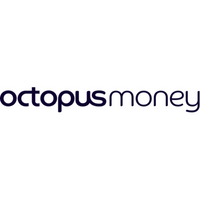How to improve your approach to pension advice
Inequality in financial advice is rife. An estimated 20 million people are believed to fall into the ‘free advice’ gap, while another 6 million find themselves in the ‘affordable advice’ gap (according to Open Money).
But money worries are universal. Regardless of our backgrounds, beliefs, ethnicity or gender, more than 94% of us worry about money and are not getting the help we need, particularly when it comes to saving for retirement.
Only a small minority of people are saving enough to afford the lifestyle they want in retirement. This ‘pension time bomb’ is only ticking faster with inflation. Employees risk missing out if they don’t act, and act quickly.
The way we do pension advice needs to change, and it needs to work for everyone.
1. Review everything
Start by reviewing your pension (and other) offerings. Do they cater to everyone?
Then, review how you are communicating those benefits. Your company communications will likely have built-in biases towards the needs of the general demographic. Think about the language you use to talk about money.
Then ask your diversity, equity and inclusion (DE&I) contacts to help you review – their fresh eyes can often reveal hidden opportunities to engage more people.
2. Engage your employees
Most employees don’t know how much money they need for retirement and there’s plenty of myths circulating about what ‘enough’ looks like.
Our coaches often hear employees say ‘I’m auto-enrolled through work so I don’t need to do more’ or ‘my state pension will be enough’ – neither of which are true.
And your employees are likely seeing lots of potentially inaccurate guidance coming from social media. Make sure you’re offsetting this with more reliable and informed stakeholders to turn to.
Financial wellbeing ambassadors or ‘first-aiders’ are an excellent way to put a human face to money conversations. But make sure they’re relatable and inside all of your company networks.
3. Focus on equity
Companies looking into their own pension data are also likely to find gender gaps when it comes to levels of pension savings.On average, men have 38% more in their pensions at retirement age. And in 2020 the Resolution Foundation found huge variation in household wealth across ethnicities – which, of course, has a knock-on effect on pensions.
We should strive to go beyond strategies that focus on just gender and race. Differences you don’t see can also have a powerful impact on mindsets and approaches to money.
What about employees going through divorce? Or with caring responsibilities? Employers need to look at pensions through the lens of equity (is everyone getting what they specifically need to succeed), not just equality (giving everyone equal access to the same information).
4. Make it easier to talk
Talking helps employees see what’s possible with their money and pensions. Working with a money coach, employees can navigate uncertainty, or lack of confidence, and take action.
But it’s not just about employees having someone to talk to. As an employer, starting a new kind of dialogue with your employees about pensions is likely to open your eyes to possibilities you may not have considered (for example, the rise of workplace halal pensions).
5. Personalise
No two retirement goals will be the same. Some of us can’t wait to settle into a quieter pace of life while others dream of travelling the world.
Pension advice needs to be truly personalised to take into account individual circumstances. Reframe the focus away from pensions as a product, and instead focus on helping employees think about and plan for their life in retirement. Employers need to help employees see contributing to their pension as a way to create an infinite array of possibilities for their future self.
There is hope
There are a lot of problems and a big lack of inclusion in the way pensions are talked about. An employer cannot solve them all overnight.
But even a small first step towards changing the way you engage employees on pensions could have a disproportionately large impact on the long term financial health of your teams.
Supplied by REBA Associate Member, Octopus Money
People are your single biggest investment. We’ll help them get the most out of their pay and pension – by connecting the dots between their dreams in life and their reward at work.








